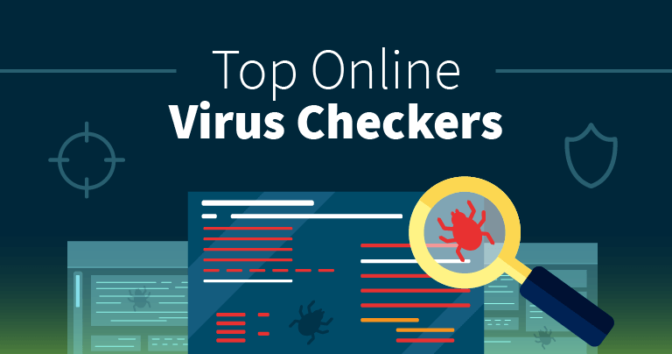Best Free Online Services for Finding and Removing Viruses
It’s very likely that you’ve already encountered computer viruses. If not, you’re very lucky. However, if you use Windows, you should always stay alert. First, it’s important to note that free online antivirus tools are not a replacement for standard antivirus software, but they can be very useful in a pinch—for example, when an unfamiliar PC is acting strangely or malfunctioning.
Below, you’ll find the most reliable and free tools for detecting and removing viruses, plus a few services for analyzing individual files.
Top Online Antivirus Tools
These antivirus tools can scan your entire system, as well as analyze and remove files. However, let’s repeat: these services do not replace traditional antivirus software, as they do not provide real-time protection.
Also, keep in mind that not all antivirus tools run directly in your browser. For example, with Panda Cloud Cleaner, you’ll need to download an application to your computer.
- Kaspersky VirusDesk – An online service for checking files and links for viruses, as well as reporting false positives and new threats.
It uses antivirus databases and file reputation data from Kaspersky Security Network. Kaspersky VirusDesk reports known threats found in a file and provides detailed information about it. File treatment is not available.
The scan result from Kaspersky VirusDesk may differ from results in Kaspersky Lab’s antivirus programs due to different settings.
Kaspersky VirusDesk checks files and archives up to 50 MB. If you have multiple files, add them to an archive with the password “virus” or “infected.” If you want to check a file larger than 50 MB, it’s recommended to use Kaspersky Whitelist to check the file’s reputation by its checksum. - Panda Cloud Cleaner
Panda Cloud Cleaner replaced the previous online antivirus Panda ActiveScan and added new features. For example, before scanning, you can terminate unnecessary processes, increasing the chances of detecting malicious files hidden behind legitimate processes.
This antivirus is very easy to use. After scanning, you can select which malicious files to remove. However, the scan can take a long time, so if you’re in a hurry, you might want to consider alternatives. - ESET Online Scanner
ESET Online Scanner is one of the most thorough free online antivirus tools. The interface is simple, and you shouldn’t have any trouble using it. You can choose between full, quick, or custom scans. Plus, you can decide whether to quarantine or delete malicious files. Quarantining is useful in case of false positives. - Google Chrome
That’s right—you can scan for malicious files directly from Google Chrome. Since this browser is very popular, there’s a good chance you already have it installed.
To launch the scanner, copy and pastechrome://settings/cleanupinto the address bar (this won’t work in other browsers). Once the page loads, select Find and wait for the process to finish. - F-Secure Online Scanner
F-Secure Online Scanner is the fastest among similar antivirus tools. It can detect most malware and doesn’t require installation.
The functionality is very simple—only full system scanning is available. However, given its speed, this shouldn’t be a problem.
Malware File Analyzers
Analyzers or individual scanners, unlike online antivirus tools, do not scan your entire system. As the name suggests, they are designed to analyze individual files before you use them on your system, instead of quarantining them after detection.
Additionally, by submitting your files for analysis, you help update the signature databases and algorithms of these services.
Again, using file analyzers does not eliminate the need for traditional antivirus software on your device.
- VirScan
VirScan allows you to upload files up to 20 MB for analysis based on a huge database of file signatures collected worldwide from other antivirus programs.
You can upload ZIP or RAR archives, but they must contain no more than 20 files. - VirusTotal
VirusTotal lets you analyze a file (or its hash), URL, IP address, or domain, and offers the most features and the largest database of malware and signatures.
Like the previous analyzer, VirusTotal collects file descriptions from across the internet. You can also submit files by email. Send a file (up to 256 MB) directly to VirusTotal and wait for a response about its status. - MetaDefender
MetaDefender collects signatures from 30 antivirus engines. The analysis process is similar to the previous services. You can scan a file, IP address, URL, domain, or even a CVE.
The interface is quite simple.
Which Online Antivirus Is the Best?
All these services share one drawback: they cannot provide real-time scanning and protection, which is crucial in today’s world where new threats appear daily.
However, if you’re on a tight budget, as you can see, there are plenty of free and worthy alternatives available.



